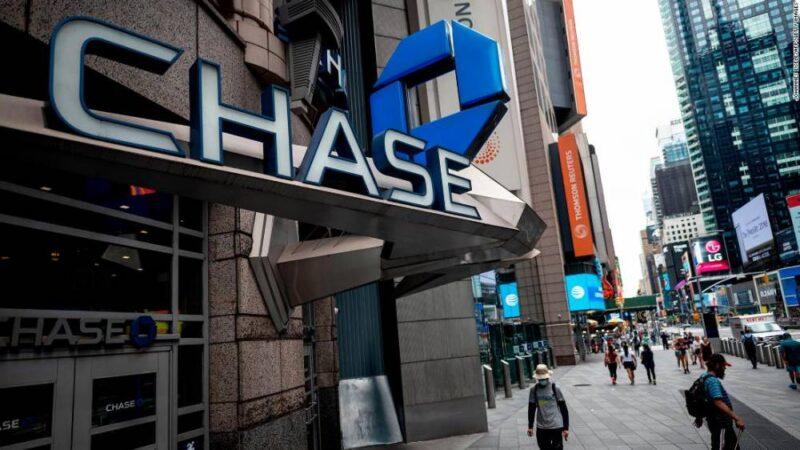A version of this story first appeared in CNN Business’ Before the Bell newsletter. Not a subscriber? You can sign up right here. You can listen to an audio version of the newsletter by clicking the same link.
London (CNN Business)Inflation is high. It could stay that way.
The US consumer price index rose 5.4% over the previous year in September, according to data published Wednesday. Stripping out food and energy, which tend to be more volatile, prices rose 4% over the same period.Inflation has now been at elevated levels for months, both in the United States and many other economies. The trend is making central bankers — who are paid to care about inflation — increasingly nervous.
Still, the hits keep coming.

China's record factory inflation poses another threat to supply chainsIn China, the producer price index — which measures the cost of goods sold to businesses — soared 10.7% in September from a year ago, according to data released Thursday. That is the fastest increase since 1996, when the government began releasing such data.Read MoreLooking more broadly, inflation in countries that belong to the Organization for Economic Cooperation and Development rose to 4.3% in August, continuing an upward trend beginning in December 2020.For months, many economists and central bankers have repeated the mantra that inflation will be “transitory.” Prices are going up because of temporary pandemic factors, they argue, and inflation will moderate on its own.Here’s what the Federal Reserve said in the minutes of its September meeting, released on Wednesday: “The staff’s near-term outlook for inflation was revised up further in response to incoming data, but the staff continued to expect that this year’s rise in inflation would prove to be transitory.”There’s that word again — “transitory.” What does it mean? Merriam-Webster tells us that transitory means “of brief duration” or “temporary.” Most Americans probably don’t consider the better part of a year to be a “brief duration,” but “temporary” does give the Fed a little more wiggle room to continue describing inflation as transitory. Still, not everyone agrees. Raphael Bostic, president of the Federal Reserve Bank of Atlanta, has actually banned his staff from using the “swear word.” If they do use it, they have to put a dollar in the cookie jar.”It is becoming increasingly clear that the feature of this episode that has animated price pressures — mainly the intense and widespread supply chain disruptions — will not be brief,” he said in a speech this week.

Jamie Dimon says worst of pandemic may soon be over”Data from multiple sources point to these lasting longer than most initially thought. By this definition, then, the forces are not transitory,” said Bostic.Setting aside the debate over the word-that-shall-not-be-used, investors need to pay attention to the factors driving inflation, which include rising energy prices, shortages of goods and wage increases.If inflation does stick around longer than central banks anticipate, they could be forced to hike interest rates aggressively. “The key risk here is that shortages persist for longer than we anticipate and prices rise more substantially,” said Neil Shearing of Capital Economics.”Central banks are likely to pay particularly close attention to what’s happening in labor markets,” he said. “If policy is tightened more aggressively than we expect, it is likely to be because labor shortages have caused a larger and more sustained increase in wage growth.”Where is the risk most pronounced? The United States, according to Shearing.
SEC to seek more admissions of wrongdoing
The US Securities and Exchange Commission is trying again to get more corporate miscreants to admit they’ve broken the law. That may sound like something Wall Street’s top cop should already be doing. But it doesn’t happen very often. The SEC has traditionally allowed defendants to settle enforcement probes without admitting or denying the agency’s charges. The Obama administration tried to change that, but it only extracted a small number of “admissions.”Now, the SEC is having another go. “In an era of diminished trust, we will, in appropriate circumstances, be requiring admissions in cases where heightened accountability and acceptance of responsibility are in the public interest,” Gurbir Grewal, director of the SEC’s enforcement division, said in a speech Wednesday. “Admissions, given their attention-getting nature, also serve as a clarion call to other market participants to stamp out and self-report the misconduct to the extent it is occurring in their firm,” he added.
Social Security benefits are getting a huge bump
The announcement that Social Security retiree benefits will rise by 5.9% next year — the largest cost of living increase since 1982 — should be welcome news for many seniors, reports my CNN Business colleague Jeanne Sahadi.Besides the strain of the pandemic, those living on low to moderate incomes have been hit especially hard by the one-two punch of rising inflation and low interest rates.

Social Security benefits get a huge bump. But retirees need to do more to protect savingsSenior citizens found themselves paying more for essentials, while earning next to nothing on their savings and getting a monthly Social Security check that rose by just $20 on average in 2021.That small increase was based on inflation growth from the third quarter of 2019 to the third quarter of 2020. So it didn’t account for the pandemic-induced inflation spike that occurred this year.As a result, the upcoming 5.9% bump will help compensate for that shortfall, since the average Social Security retiree check will increase by $92 to an estimated $1,657 per month.Seniors still need to be careful with their spending. Inflation could continue to erode buying power into next year, and Medicare premiums are rising.
Up next
Earnings from Citigroup (C), Bank of America (BAC), Domino’s Pizza (DMPZF), Morgan Stanley (MS), Wells Fargo (WFC), United Health and Walgreens Boots Alliance are out before the opening bell.Also today:
- US producer price index for September at 8:30 a.m. ET
- US jobless claims at 8:30 a.m. ET
- EIA crude oil inventories data is out at 11:00 a.m. ET
Coming tomorrow: US retail sales for September will give investors a sense of how consumers are reacting to rising prices.
Source: edition.cnn.com

